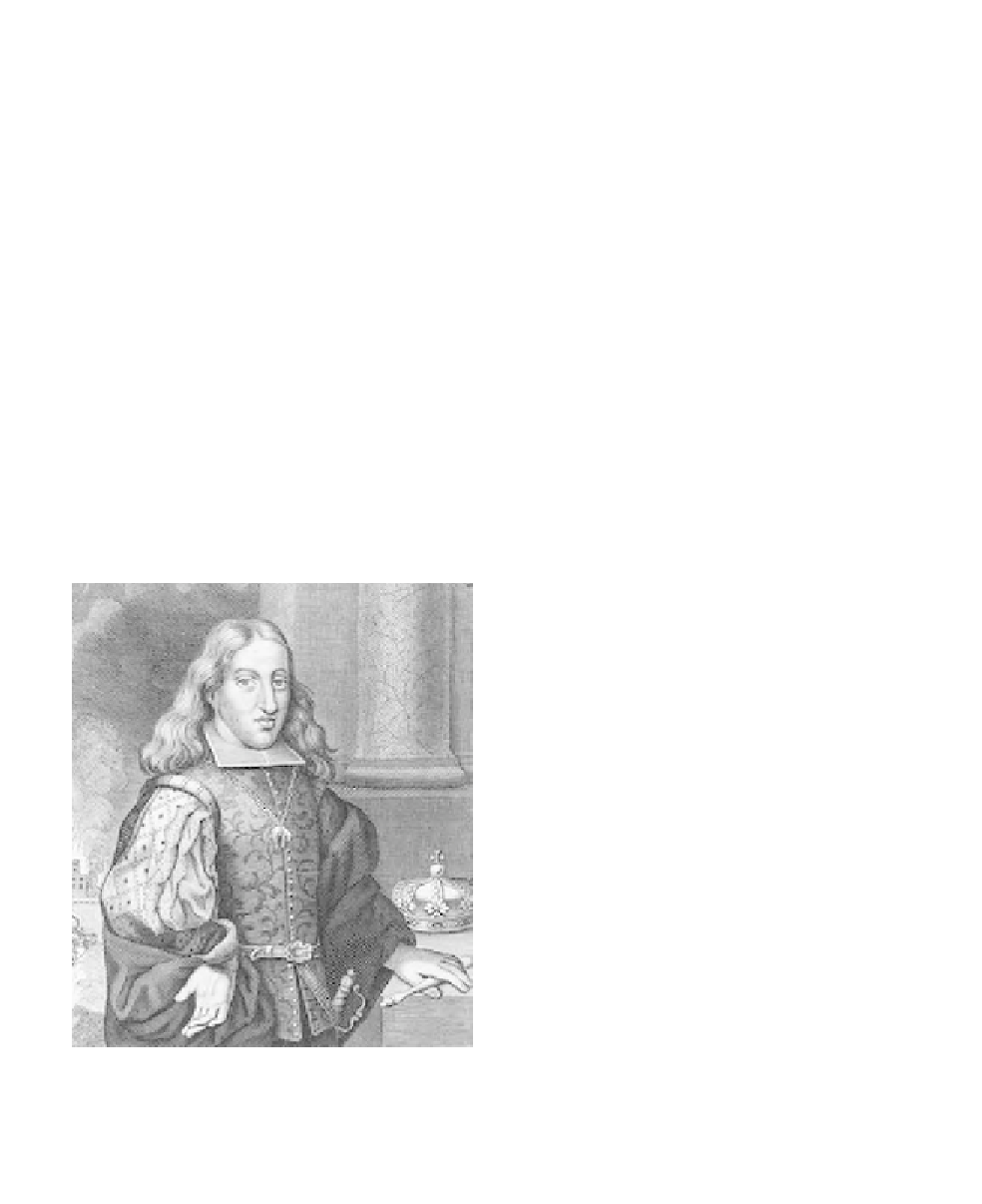Travel Reference
In-Depth Information
of his birth and an object of great concern
when he succeeded his father in 1665.
While his mother's regency officially ended
when he was 14, he remained under her
influence for most of his life. Various noble-
men, including his illegitimate half brother,
Don Juan José, also dominated the royal
government at various times, with varying
degrees of effectiveness. Although Charles
was surprisingly alert to the issues of the
day, his perennial poor health and neglected
education made it impossible for him to be
master of his country. Political factions serv-
ing the interest of France and Austria
shaped national policy at various times.
The changing ascendency of cliques at
court was reflected in the king's two mar-
riages, but neither his first wife, a French
princess, nor his second, a kinswoman of
the Austrian emperor, produced an heir.
Charles became a helpless bystander in a
series of wars with France that cost Spain
territory along her frontiers. The last of
these conflicts, the War of the League of
Augsburg, was brought to a close by the
French king Louis XIV, in 1697, primarily to
clear the way for the division of spoils
among the European monarchs when the
hapless Charles should finally expire. Two
successive partition treaties allocated most
of Spain's dependencies to France or Aus-
tria, with smaller benefits allotted to
England, the Dutch state, and others.
Forced to look on as his heritage was dis-
posed of without his approval, Charles II
produced a will just before his death in
1700 that left his entire realm in Europe
and overseas to Philippe, duke of Anjou, a
grandson of Louis XIV who would rule as
P
HILIP
V. While the young man was Charles's
great-nephew and there was some geopo-
litical logic to an independent Spanish state
tied to France by dynastic alliance, the ulti-
mate reason for this decision may have
been a desire to preserve the integrity of the
Spanish inheritance that Charles, during
his life, had been able to do nothing to pro-
tect. The last Spanish H
ABSBURG
thus deliv-
ered the empire created by his ancestors to
a B
OURBON
.
Charles III (Carlos III)
(1716-1788)
king of Spain
Son of P
HILIP
V by his second marriage,
Charles secured the Duchy of Parma (his
mother's ancestral home) by international
agreement in 1731 and left it three years
later when he conquered the Kingdom of
Naples from its Austrian overlords. During
his time in Italy the young monarch came
under the influence of the Enlightenment,
King Charles II
(Library of Congress)

Search WWH ::

Custom Search